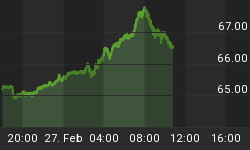As a final bailout framework for Greece continues to elude negotiators from France and Germany, the situation on the ground in Athens continues to deteriorate alarmingly. Protests have turned increasingly violent and riots have occurred in the most sensitive portions of the Greek capital.
The demonstrations have taken a political toll on the ruling socialists who recently passed the latest austerity measures with the slimmest parliamentary majority. Indeed, Louka Katseli, a former labor minister of the present government was expelled from the party as a result of her opposition to the latest austerity deal that paved the way for an immediate infusion of 110 billion euros of EU and IMF bailout funds.
The growing popular unrest and political wrangling portend an election defeat for the government of prime minister George Papandreou. Many have speculated that the growing dissatisfaction will force an election much earlier than the currently scheduled election of 2013. This begs the question: "What policies would be pursued by a new Greek government with respect to their debt obligations?
I would suggest that the next leadership coalition would likely look to similar choices made by the government of Iceland, when a similar crisis struck the tiny Nordic island in 2008 and 2009.
During the bubble years earlier in the last decade, the Icelandic economy was one of the world's leaders in debt issuance per capita, and a highly leveraged financial sector helped make Iceland an economic superstar for many years. However, it also exposed the tiny country to the first tremors of the global financial crisis. When creditors panicked and started pulling money out of Iceland's bank, the tiny economy was soon overwhelmed, and plunged quickly towards bankruptcy.
When faced with the insurmountable and reckless debts, a cascading recession, and the demands of the international political elite for more debt and austerity, the government of Iceland put it to their citizens. In early 2009, with a vote of 90 percent, Icelanders chose to default, leaving foreign investors, bankers and governments, holding much of the losses. The event stands as a stark reminder to the dangers of lending to overly indebted borrowers.
As a result of the default, the Icelandic Krona fell sharply, at one point dropping more than 70 per cent against the euro. A recession of some 5 percent followed. However, as a result of its debt repudiation, the Icelandic economy did not die. In fact, in the ensuing two years, the Icelandic economy has shown signs of improvement. Indeed, Bloomberg has reported that, "Iceland is doing better than anyone could have hoped."
Doubtless, Iceland did not adopt a costless solution. Their economy now is still a shadow of what it was back in the boom days of 2005 and 2006. However, their default may prove to be far less burdensome socially and politically than the increased debt and austerity that had been encouraged by central banking elites.
The rioting in Greece indicates that there may be massive voter enthusiasm for a solution along the lines of what occurred in Iceland. The difference between Iceland and Greece is their size (Greece is much larger), and the degree to which they are integrated into a larger political establishment (Greece is a member of the EU). As a result, Iceland was able to pursue its own agenda with fewer strings attached.
Banks in France and Germany, the two countries that dominate the European Union, hold a great deal of the sovereign debt issued by periphery EU countries with less sophisticated economies. As a result France and Germany are using their considerable political clout to prevent Greece from becoming another Iceland. Instead, they are forcing Greece to take on even more debt (and to make painful austerity cuts).
But increased debt reduces the ability to service even the current debt. Indeed, it increases the cost and difficulty of future borrowing. In the end living standards have to fall.
But, in the Internet age, voters are far more aware. For how long will voters accept increasing austerity and greater poverty in order to keep afloat governments they see as corrupt and banks they perceive as greedy?
If the citizens of Greece follow the Icelandic lead, a larger sovereign debt crisis will likely follow. In such a scenario all fiat currencies will likely suffer. However, those considerations will merit little concern from those throwing Molotov cocktails on the streets of Athens. In the end, Greek politicians will cater to their constituencies rather than their creditors. We should all prepare for that.
Subscribe to Euro Pacific's Weekly Digest: Receive all commentaries by Peter Schiff, Michael Pento, and John Browne delivered to your inbox every Monday.
For an even more in depth look at the prospects of international currencies, download Peter Schiff's and Axel Merk's Five Favorite Currencies for the Next Five Years.
For a great primer on economics, be sure to pick up a copy of Peter Schiff's hit economic parable, How an Economy Grows and Why It Crashes.















